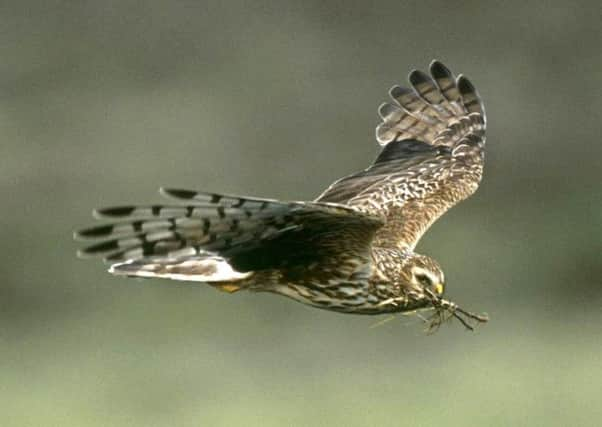RSPB says the North is persecution hotspot


The charity challenges the shooting community to acknowledge the problem and to take real action to stop the killing.
In northern England, there were 82 reports of birds of prey suffering from illegally persecution in 2013 - more than in any other part of the UK, although less than the 113 incidents reported a year earlier.
Advertisement
Hide AdAdvertisement
Hide AdAcross the Home Nations, the trend is also downward with some 164 birds of prey reported shot or destroyed in 2013, including the shooting of two hen harriers, two marsh harriers, five peregrines and 28 buzzards, and 74 reports of wildlife poisoning and pesticide-related offences.
In the previous 12 months, there were 208 reports of birds of prey shot or destroyed and 78 incidences of wildlife poisoning.
But the RSPB believes the figures represent a fraction of incidents, with many thought to go undetected and unreported.
Martin Harper, the RSPB’s conservation director, said: “Witnessing a hen harrier’s dramatic skydancing display flight, or seeing the world’s fastest animal in action as a peregrine stoops over the moors is enough to take your breath away. These are sights that we should all be able to enjoy. Unfortunately, we are being robbed of the chance to see these beautiful birds flourish because of illegal persecution.”
Advertisement
Hide AdAdvertisement
Hide AdThe RSPB said it was trying to tackle the problem by satellite tracking threatened species, protecting their nests, monitoring and undertaking research, raising awareness among the public of the problems faced by birds, and working with others to stop persecution.
Tackling wildlife crime requires a joint approach but condemnation from organisations representing the shooting community is not resulting in a widespread reduction in illegal persecution, the RSPB said.
More action is needed in the uplands, the charity added, where attempts to end illegal persecution through self-regulation have proved ineffective, it claimed.
“Illegal persecution has tarnished the beauty of our uplands for decades and continues to do so to this day,” Mr Harper said.
Advertisement
Hide AdAdvertisement
Hide Ad“The RSPB challenges members of the shooting community to acknowledge that illegal persecution is a problem within the industry and that a change of attitude is needed in order to make a serious and effective effort to finally consign bird of prey persecution to the history books.”
The British Association for Shooting and Conservation (BASC), the national body for sporting shooting which represents more than 120,000 members, responded with a statement, condemning illegal persecution but criticising the RSPB’s approach.
It said: “BASC already works with all organisations with a genuine interest in tackling wildlife crime of whatever sort. BASC has always condemned illegal persecution of birds of prey and expels any member convicted of involvement. BASC works with the police at national and local level on this issue.
“Persecution of birds of prey is a criminal act which we oppose. The problem of tackling this crime will not be solved by the politics of division and short-term PR goals.”
Advertisement
Hide AdAdvertisement
Hide AdThe Moorland Association also criticised the RSPB for not highlighting an historic fall in reported incidents.
Amanda Anderson, the Association’s director, said: “One bird of prey death from an illegal act is one too many, but the RSPB continues to invest time and money in unofficial reports to inflate the issue of birds of prey crime.
“In fact, even its own figures show a drop of 39 per cent in reported incidents from 2009 – 2012; a good news story never highlighted in its anti-gamekeeping agenda.
“The MA works with Partners Against Wildlife Crime to publish actual official crime figures from the National Wildlife Crime Unit to stamp out wildlife crime and is working hard with RSPB and others to finalise a recovery plan for the hen harrier in England.
Advertisement
Hide AdAdvertisement
Hide Ad“At a time when most of Britain’s birds of prey are at an all-time high with hundreds of thousands of individuals, the MA continues to advocate legal solutions for rural conflicts.
“The MA also promotes conservation success stories such as the Merlin – Britain’s smallest bird of prey – which is four times more abundant on moors managed for red grouse, with breeding records doubling in the last 20 years, whereas where there are no gamekeepers they have alarmingly dropped by half in the same time frame.”
Defra said anyone who kills or injures a wild bird is committing an offence and could face jail if convicted, adding that it is working with a range of game and wildlife organisations to finalise an action plan to protect hen harriers.